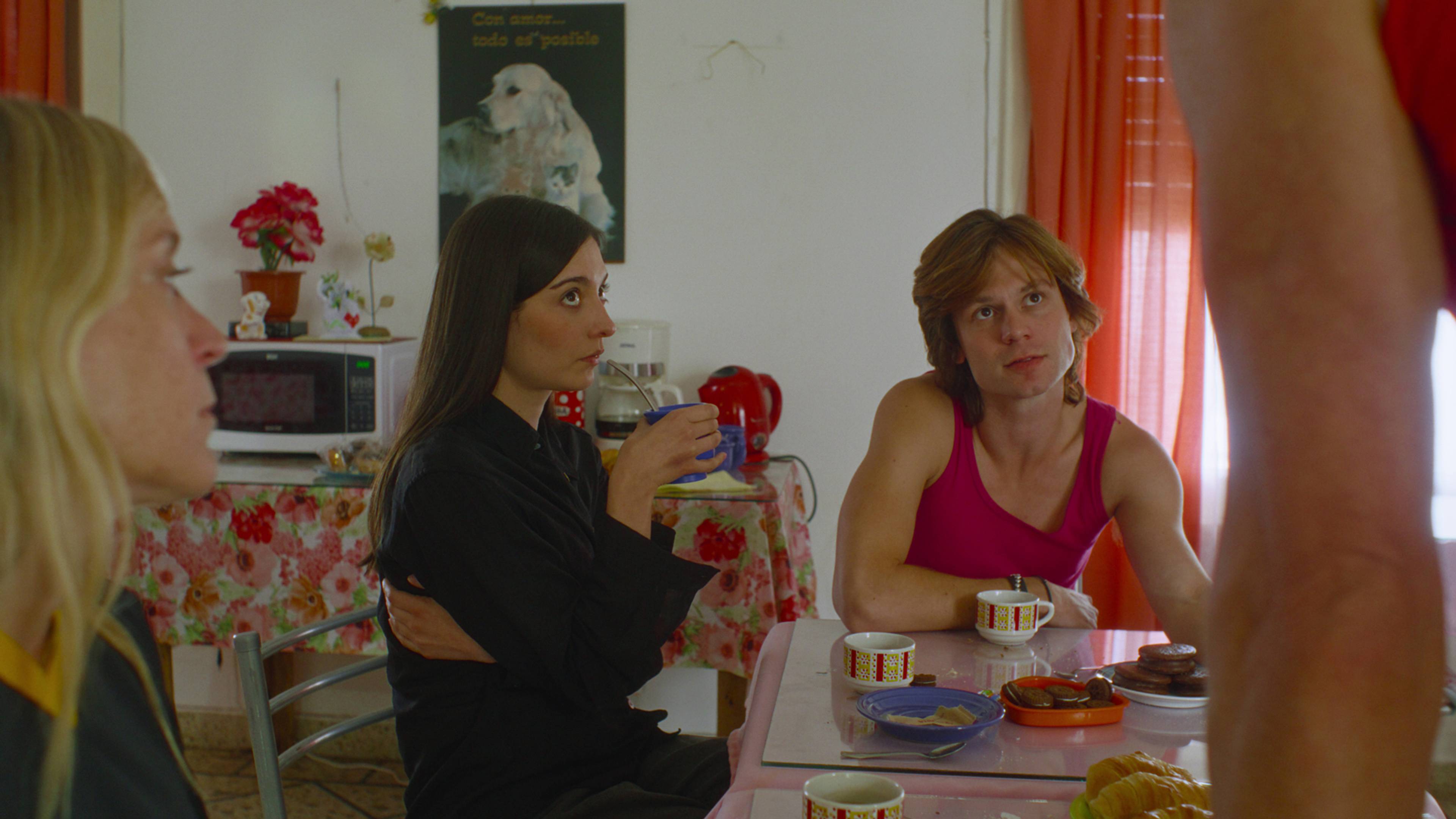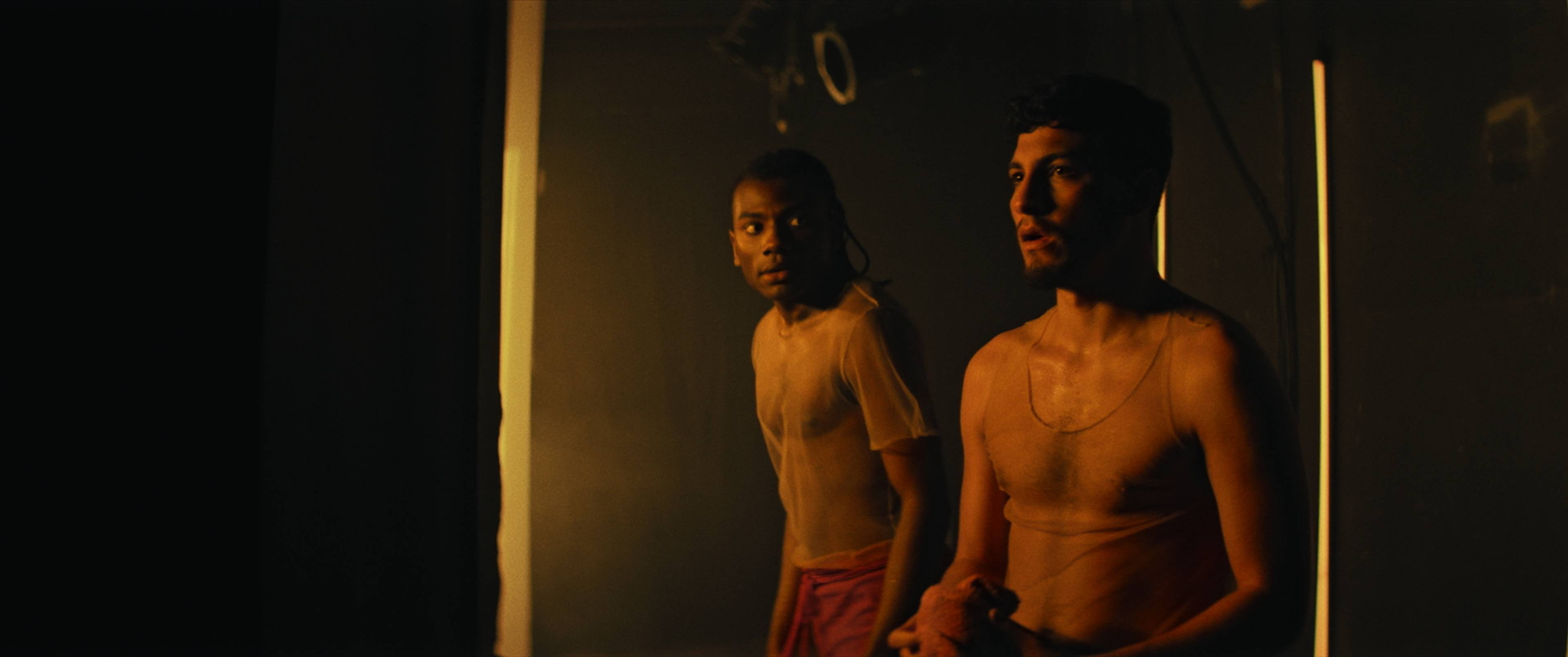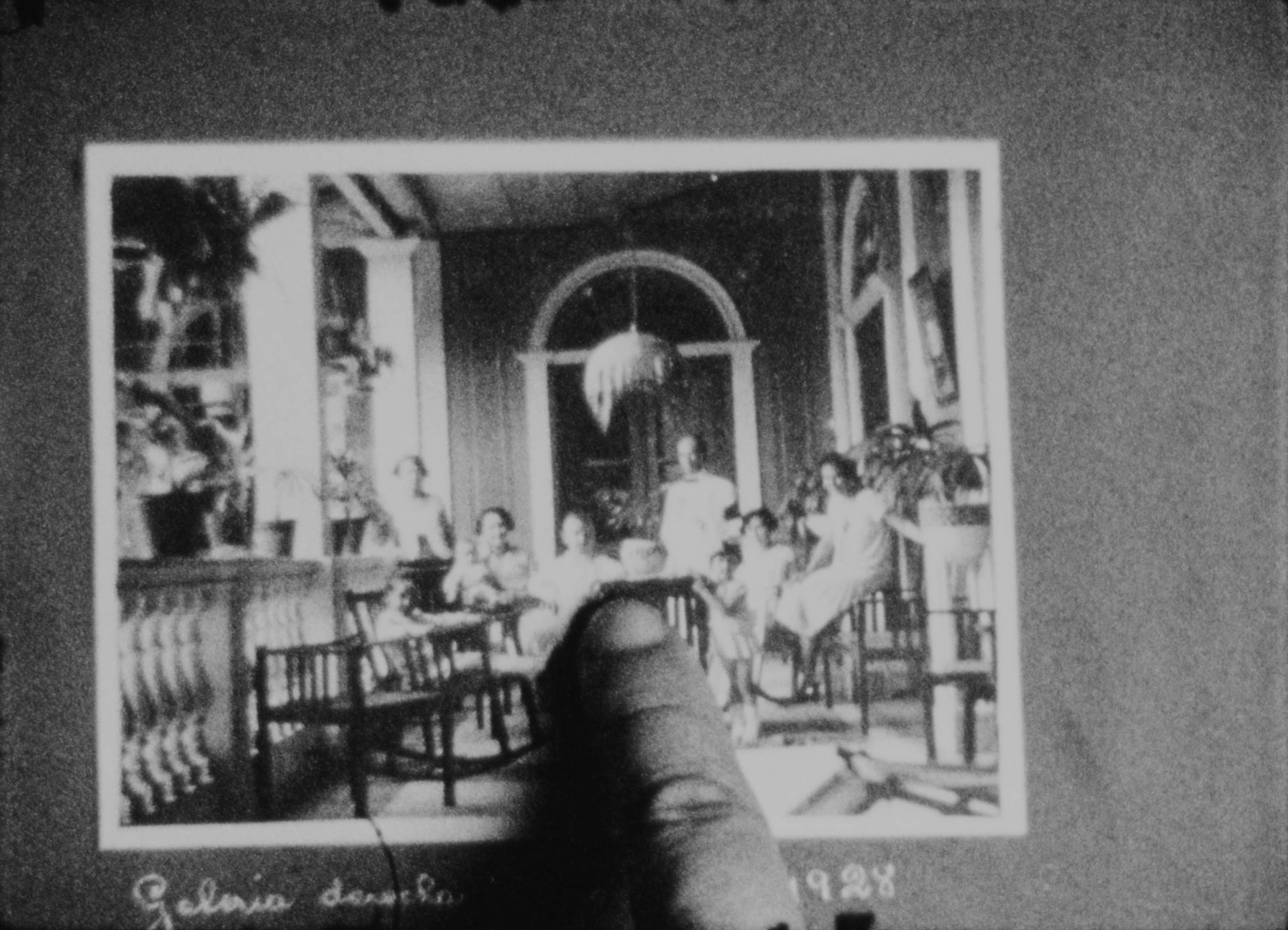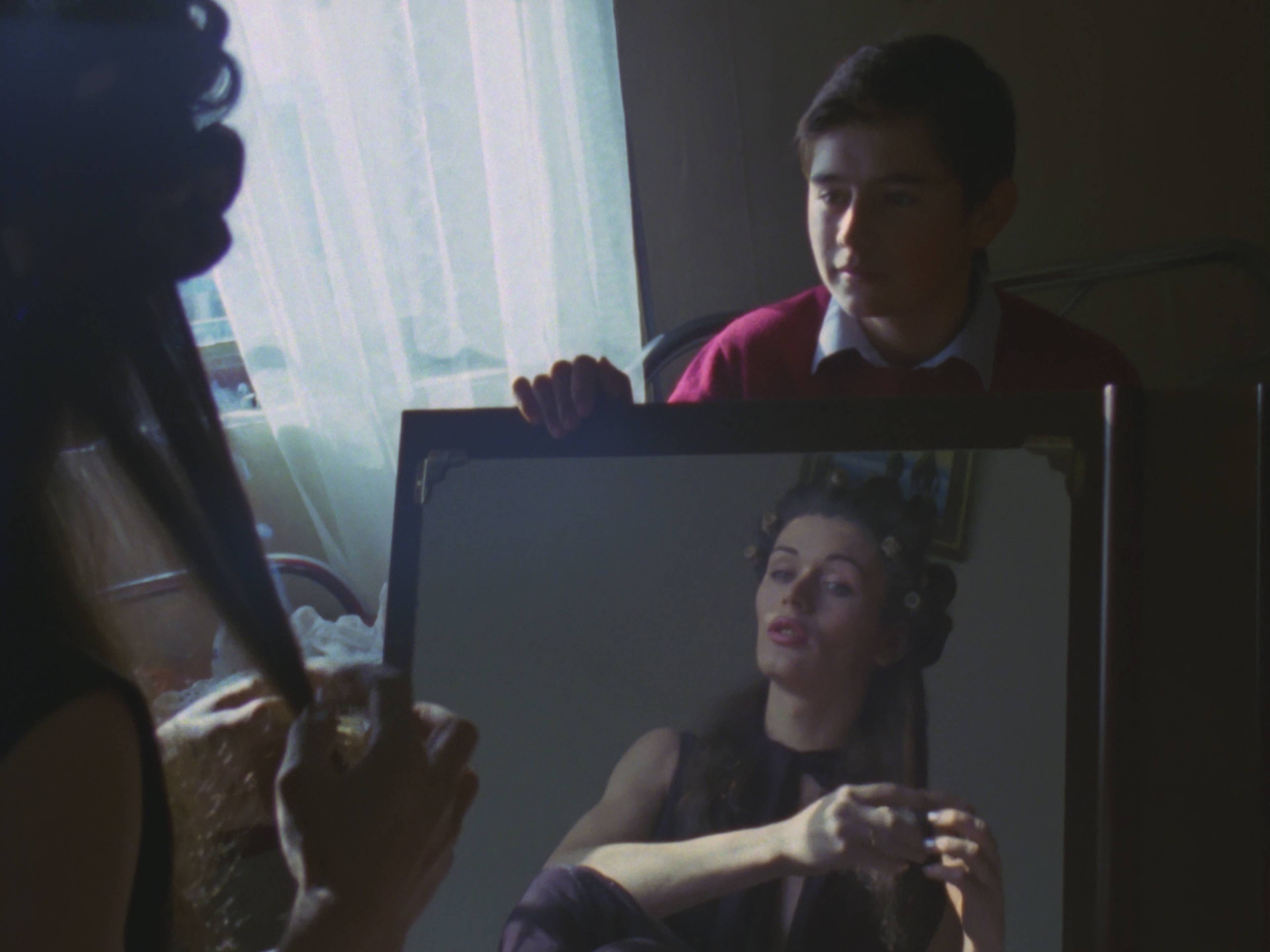The Berlinale has a split personality. Often described as the underdog of the “Big Three” international film festivals – behind Cannes’ preening agenda-setting and Venice’s old-school glamor – Berlin has long styled itself as the edgier alternative to its better-groomed peers, its sense of uncompromising cinephilia reinforced by a February slot, during the bleakest, most godforsaken weeks of the Berlin year.
The festival wears its art credentials proudly, especially in dense program strands such as the artist-led Forum and the internationally minded Panorama. Yet, this self-styled cool kid is just as fixated on stars as other A-list festivals. Attracting stars is an obvious commercial imperative, especially given ever more-straitened funding environments for cultural cinema worldwide. But there is something uncomfortable about going through the motions of star worship within a festival that, elsewhere, is studded with challenges to the film industry’s hierarchical power structures and vacuous excess.
The disjunct between the Berlinale’s espoused values and the actions of the festival itself was thrown into relief last year by two specific incidents: the denunciation by German officials of two directors of No Other Land, Basel Adra and Yuval Abraham ,who protested the genocide in Gaza and Israeali apartheid as they accepted the festival’s Documentary Award; and the invitation (and swift disinvitation) of AfD politicians to the festival’s opening night. Nevertheless, inside the imperfect machine, the festival remains a launchpad for filmmakers who, unafraid to show their fangs and take risks, are likely to go on to define alternative cinema in the coming years.
Still from Magic Farm, 2025, 93 min. Courtesy: Spacemaker
Amalia Ulman – Magic Farm (2025) PANORAMA
Magic Farm is the delightfully bonkers second feature from multimedia artist Amalia Ulman, a witty chronicler of internet culture and hipster mores. The film picks up on the themes of previous artworks such as Excellences & Perfections (2014), which diarized the misadventures of Ulman’s Instagram avatar, and International House of Cozy (2015), a consumerist porn video, but expands their scope to a savvy critique of content creator hustle, exploitative media, and US arrogance. Here, Ulman directs, writes, and stars as Elena, a filmmaker shooting a viral web series for a Vice-style gonzo-journalism channel. Accompanied by grumpy host Edna (Chloë Sevigny), incompetent producer Jeff (Alex Wolff), and affable sound guy Justin (Joe Apollonio), Elena travels to a small Argentinian town, planning an episode about Super Carlitos, a cultish, bunny-ear-wearing musician, only to find they’ve arrived in the wrong location. Having blown the budget already, the crew concoct a whimsical story about a cumbia-obsessed religious cult, manipulating the locals to star in their video.
Tonally unpindownable, Magic Farm is a riot of culture-clash comedy, acerbic critique, and DIY style. Ulman relishes the garish visuals of viral culture, mixing up POV shots (including a dog-cam), fisheye lenses, 360-degree simulations, and fly-on-the-wall footage, to dizzying effect. The script, although performed with untethered, improvisational energy, is packed with smart one-liners and goofy sight gags. There’s plenty of hipster baiting (“You need to take less ketamine, you’re not a horse,” Edna tells Jeff disdainfully), as well as riffs on soft-boy hypocrisy and gringo ignorance, especially when Jeff begins courting local teenager Manchi (Camila del Campo). Nonetheless, Magic Farm is never snarky, and Ulman is particularly compassionate towards her Argentinian characters, who, while undeniably unorthodox, are never presented as freaks. “They heat up the kettle, but don’t brew the maté,” Manchi complains after a disappointing romantic encounter with Jeff. The same accusation could never be levelled at Ulman; in Magic Farm, the kettle boils and the maté flows.
Still from Ato noturno, 2025, 117 min. Courtesy: Vulcana Cinema and Avante Films
Márcio Reolon & Filipe Matzembacher – Ato noturno (2025) PANORAMA
Night Stage, co-written and directed by Marcio Reolon and Filipe Matzembacher is a quintessential Panorama title – stylish, outrageous and fearlessly enjoyable, with plenty of dark humor. An opening sequence, of beautifully muscled bodies twisting and flexing under stage lights as a mysterious woman watches, sets the clammy tone. These are the rehearsals of an elite physical theatre troupe, the toast of Brazil’s Porto Alegre, and the woman is scouting actors for a new television show. When she invites the macho Fabio (Henrique Barreira) to audition, his roommate, Matias (Gabriel Faryas), is dismayed to hear that his own talent is overshadowed by his more gender-fluid appearance. This encounter kicks off a rivalry between the two performers, which intensifies when Matias starts a clandestine relationship with closeted hunk Rafael (Cirillo Luna), an ambitious politician with a penchant for public sex.
Heavily influenced by Brian de Palma and Paul Verhoeven, with a sweeping, string-heavy, Bernard Herrmann-esque score and gorgeous, neon-soaked visuals, Night Stage is an erotic thriller which wears its kinky heart on its sleeve (or bare arm, given how much time the lead characters spend shirtless). The hot-blooded, sweat-drenched performances and theatrical imagery propel forward its undeniably contrived plot. Beneath the horny hijinks lies a message about the divide between our public and private selves which carries some real weight, even if, by the ecstatically over-the-top ending, that social commentary might have become a little lost in the mix.
Still from La Memoria de las mariposas, 2025, 77 min. Courtesy: Oublaum Films
Tatiana Fuentes Sadowski – La memoria de las mariposas (2025) FORUM
Peruvian director Tatiana Fuentes Sadowski’s debut feature is a beautifully made and thought-provoking attempt to craft an ethically responsible film from the fragments of colonial archives. Like an antidote to Werner Herzog’s swaggering Fitzcarraldo (1982), The Memory of Butterflies is a documentary about the bloody history of the Amazonian rubber trade. Its starting point is a 1911 photograph of two young indigenous boys, Omarino and Aredomi, who had been taken to London to be “exhibited as propaganda” by campaigners against British-affiliated companies in the Amazon. Curious as to their fates, Sadowski began piecing together their story through their few visible traces in official archives and early 20th century colonial propaganda films.
These fragments are interwoven with gloriously grainy Super8, shot by Sadowski as she travelled through the Amazon to meet with Indigenous communities descended from the two boys. All the while, she plays with form, tinting quivering images red or blue, allowing them to flicker with a beguiling intensity as if troubled by signals from a long buried past. “I’ve received a charge. I’m speaking of a transmission, of receiving a message, perhaps formulated long ago, extended to whoever could receive it,” says Sadowski in voiceover. As she traces these ghosts into her own family history, the transmission becomes stronger, bringing with it an understanding that the past never dies, even as images fade.
Still from After This Death, 2025, 96 mi. Courtesy: Likeliness Increases
Lucio Castro – After This Death (2025) SPECIAL GALA
After This Death is the latest unclassifiable audience splitter from Argentine-US filmmaker Lucio Castro, who piqued the interest of the arthouse circuit back in 2019 with his first feature End of the Century. Picking up on the same enigmatic mood, dream logic and open-ended storytelling, Castro’s follow-up is likely to be similarly divisive – some viewers will find it energizing, others excruciating.
Isabel (Mia Maestro) is hiking in upstate New York one day, when she encounters a handsome bearded stranger, Elliott (Lee Pace). Later, Isabel is invited by an earnest music journalist friend (Gwendoline Christie) to a concert, where she discovers that Elliott is the lead singer of a gloomy indie band (think Joy Division meets The Magnetic Fields). Although she is pregnant and married, they sparks up a passionate, deeply erotic affair – rarely has a visibly pregnant lady been portrayed so hornily on screen – but their relationship is short-lived. When their paths later cross again, pulled together by an inexplicable twist of fate, Isabel finds herself the target of increasingly unsettling attention from Elliott’s fans.
Castro operates on a plane beyond logic, building worlds where vibes trump conventional rationality. It helps that After This Death’s atmosphere is so convincingly ominous, helped along by a doomy score of fictitious rock songs written by Robert Lombardo and Yegang Yoo. A haunting sequence towards the film’s conclusion offers enough spine-tingling electricity to overcome any doubts. When so many films spell out too much, there’s something masochistically refreshing about a filmmaker who refuses to surrender the answers you crave – especially when that refusal to deliver is packaged with so much eerie commitment.
Still from Vestida de azul, 1983, 96 min. Courtesy: Video Mercury Films
Antonio Giménez-Rico – Vestida de azul (1983) CLASSICS
Sure, it’s not Bologna’s Il Cinema Ritrovato, but there’s an argument to be made that you could attend Berlinale, only watch archive titles, and still enjoy one of the best festival selections of the year. 2025’s Retrospective strand, focused on “wild, weird and bloody” German genre films of the 1970s, including such high concept curios as Lady Dracula – a sexy centenarian vampire gets a job as a mortuary cosmetologist in late 70s Vienna – and The Girls from Atlantis, wherein hot aliens seduce human men, shrink them and carry them back to their underwater kingdom to serve as sex slaves. Meanwhile Berlinale Classics offered its usual elegant showcase of restorations, from Howard Hughes’s 1930 World War I epic Hells Angels to Yasuzô Masumura’s intense 1965 anti-war melodrama The Wife of Seisaku.
For my money, however, the standout in a striking selection was Dressed in Blue, a 1983 documentary that follows several trans women in post-Franco Madrid. Antonio Giménez-Rico’s film opens like a noir: six women, decked out in furs and tottering heels, are illuminated by street lights as they screen passing cars for potential clients. Then, suddenly, an explosion of blue lights: The women scatter as the police swoop in, pulling them into their cars; the party’s over.
From this dramatic opening emerges a revealing portrait of this ragtag group of colleagues, comrades, and frenemies. A striking framing device shows the women gathered together in a sunny conservatory, eating dainty cakes off white tablecloths as they gossip and argue about money, love, sex, and friendship. In between these exquisitely staged brunch sequences, the director introduces the women one by one, cutting observational footage from their everyday lives into candid interviews.
Aside from some shock-factor moments – Giménez-Rico’s focus on bodies and surgeries feels dated – Dressed in Blue is relatively sensitive, presenting these charismatic protagonists as three-dimensional people with complex histories. It’s also handsomely mounted, shot more like a drama than a documentary, with vivid colors, stunning outfits, and extraordinary mise-en-scene. Like an Almodóvar film come to life, Dressed in Blue is regarded as an LGBTQIA+ touchtone in Spanish cinema; its Berlinale premiere makes a clear argument for its integration into the global queer canon.
___
75th Berlin International Film Festival
13 – 25 Feb 2025







